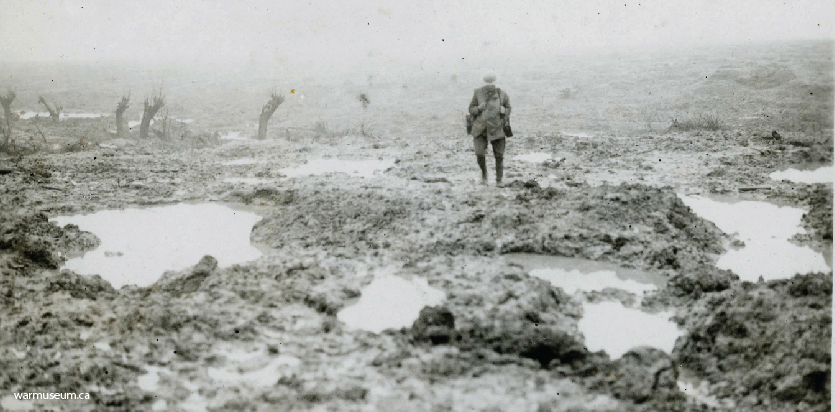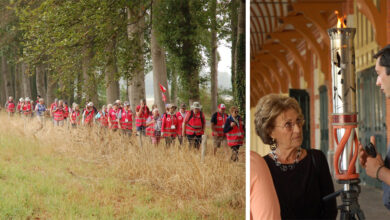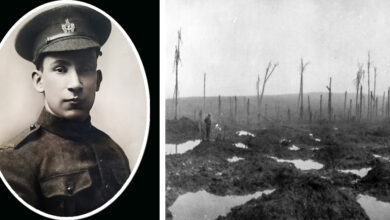Remembering
Celebrating the 99th anniversary of the Passchendaele Ridge Battle
On November 10th Canada will remember the 99th anniversary of the Passchendaele Ridge Battle that cost the lives of nearly 16,000 Canadians in 1917.
“The Passchendaele Ridge battle has always been remembered as a costly, difficult, dangerous and at times even futile battle by veterans who lived to tell their story. Though eventually successful, the heavy losses and the fact the ridge remained in Allied hands for no more than five months made it a harsh memory for those who served. The heavy rain caused the mud to accumulate in such quantities that soldiers fell and drawn in it,” explained Mélanie Morin-Pelletier, First World War historian at the War Museum of Canada.
Canadians came to the rescue of allied country Britain that had suffered extensive loss – estimated at 275,000 lives, in trying to drive the Germans away from this essential Channel Ports while also eliminating U-Boat bases on the coast.
“It was believed by eliminating the German forces from Passchendaele, the allies would have an easier time handling their own port of attach, some 15km from there, in Ypres. General Currie was, however, right in his estimation of losses – a high cost of lost lives at a critical time of the war,” she added.
The battle was made unavoidable by a desperate need for a symbolic victory which eventually succeeded.
“If there is anything the Canadians succeeded in doing during this battle, it’s to secure its position as an elite force with both Vimy and Passchendaele victories in the books,” said Morin-Pelletier.
Sir Arthur Currie, the commander of the Canadian Corps, secured an increase in artillery forces and a two-week delay before battle when it became unavoidable for Canadians to get involved in the effort. During that time he ordered the construction of new roads and buildings across a very muddy field, an improvement of gun pits and the repair and extension of tramlines.
The first attack occurred on October 26th, 1917. It was the first of a four-phase battle that ended when the Canadians secured the ridge mid-November. Germans lost an estimated 220,000 soldiers in keeping the ridge throughout the attacks from both the British and Canadian forces. By March 1918, they had taken back their port.
Passchendaele is known as one of the first Wold War’s most costly battles of attrition and often remembered as the low point of the British war effort.
“All letters, reports, and interviews that followed Passchendaele are unanimous in reporting the sheer horror of the battle that left our forces in no condition to celebrate. Thankfully, the war ended the following year,” concluded the historian.










